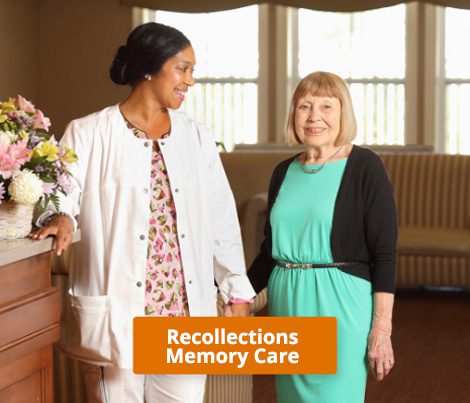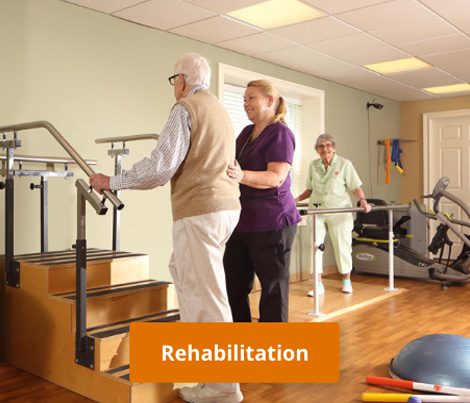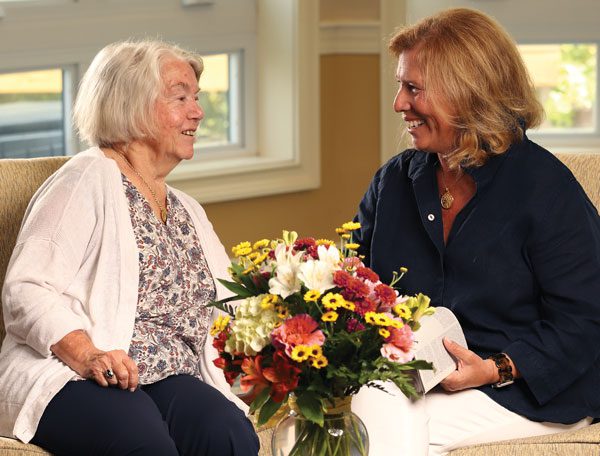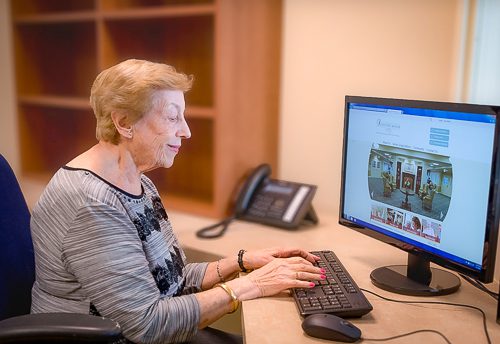How To Help When A Senior’s Hearing Changes
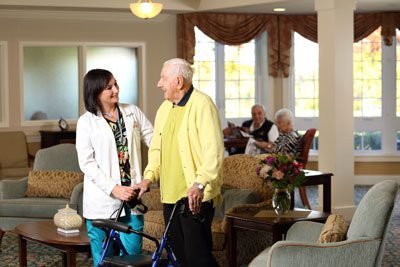
Plus, 6 Signs Your Loved One Is Having Difficulty Hearing
 If you’ve had to repeat your words more often with a senior loved one – or you’ve been asking people to repeat things yourself – you’re not alone. Mild changes in hearing are normal as people age.
If you’ve had to repeat your words more often with a senior loved one – or you’ve been asking people to repeat things yourself – you’re not alone. Mild changes in hearing are normal as people age.
While some change is normal, sometimes hearing loss can progress enough to interfere with a senior’s overall health and enjoyment of life. That makes staying on top of hearing changes an important part of senior health.
Learn more about the signs of hearing loss and how to help support a senior loved one whose hearing has changed.
Hearing Changes Over Time
Changes to hearing are a normal part of aging. In fact, about one in three people over the age of 65 and half of people over age 75 experience mild hearing loss. Most often, hearing loss is due to normal, age-related changes in the inner ear. (Other causes can include long term exposure to loud noises, and health conditions such as diabetes, high blood pressure, and stroke.)
When hearing loss is more significant, interacting with the world can become challenging and leave seniors feeling isolated. In fact, seniors with significant hearing loss are more likely to experience cognitive decline, as well as mood changes and stress related physical symptoms.
Fortunately, there are ways to help support a senior loved one whose hearing has changed. The first step is to recognize the signs.
6 Signs Your Loved One is Having Difficulty Hearing
Hearing changes often are gradual enough that seniors may not even realize their hearing has changed. Look for these warning signs that your loved one is having difficulty hearing.
- Their television or music volume is loud enough that others complain.
- They seem confused when you speak with them. They may ignore questions or answer inappropriately. (Hearing loss can look like the warning signs of dementia. It is important to know the difference.)
- They ask people to repeat themselves often.
- They don’t participate in conversations in environments with a lot of background noise, like restaurants and stores.
- Your loved one experiences tinnitus, or “ringing” in the ears. Tinnitus can also include buzzing, clicking, or whirring sounds.
- They ignore or take a long time to notice high pitched sounds, such as alarms, telephones, and children’s voices.
If you notice many of these signs in your loved one – or they’ve told you outright that they’re having trouble hearing – it is time for a check-in with their medical provider.
How Do You Help Someone with Hearing Loss?
There are many ways to help support someone with hearing loss, from changing how you speak to helping them seek treatment. Here are some ways to start:
- Encourage your loved one to see an audiologist for a consultation.
- Avoid loud, open spaces when socializing and having conversations. Instead of a restaurant with high ceilings and hard floors, opt for smaller spaces without a lot of background noise. (Our residents and families find our private dining room is a great choice!)
- Look directly at your loved one when speaking. They may be reading lips and facial expressions without realizing it.
- Speak loudly and clearly without shouting.
- In loud environments, stand between your loved one and the source of the noise when speaking with them.
- When possible, turn off background sounds like television and music during conversations.
- Avoid talking while you are eating or chewing gum.
- Encourage your loved one to use assistive devices, such as amplifiers for the telephone and closed captioning for the television.
Options for Hearing Loss: What Happens Next?
Screenings for hearing loss are an important part of senior health. If you suspect your loved one is having difficulty hearing (or they’ve told you), then it is time to see an audiologist.
An audiologist will examine the health of the ears and perform a hearing test. Based on the results, they may recommend hearing aids and help your loved one get fitted properly. They may also recommend further examination by an otolaryngologist (ear, nose, and throat specialist) if they suspect a more complex underlying cause for the hearing loss.
While hearing changes may bring some extra challenges, there are plenty of options for seniors and their families. Regular checkups, improving technology, and a supportive environment all work together to help manage seniors’ hearing health.
Learn More About Why Families Rely On Sunnyside Manor
When you have questions about senior living, we are here to help. Sunnyside Manor offers assisted living, memory care, and skilled nursing and rehabilitation. Learn more about Sunnyside Manor’s resources for caregivers. Whether you’re looking for short-term support or a longer-term plan, begin with our “Getting Started” guide. Please call us at 888-696-2052 to speak with a senior living expert.
Sunnyside Manor, located in Wall NJ, is the area’s premier family-owned senior living community. The community features three distinctive neighborhoods: Independence ‘Plus’ Assisted Living, Recollections Memory Care, and Skilled Nursing and Rehabilitation.


